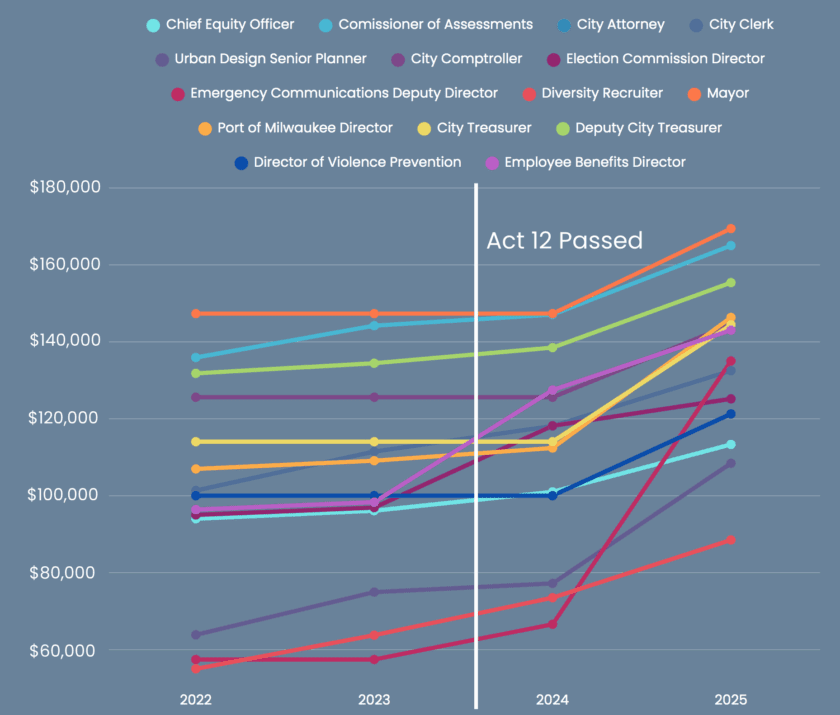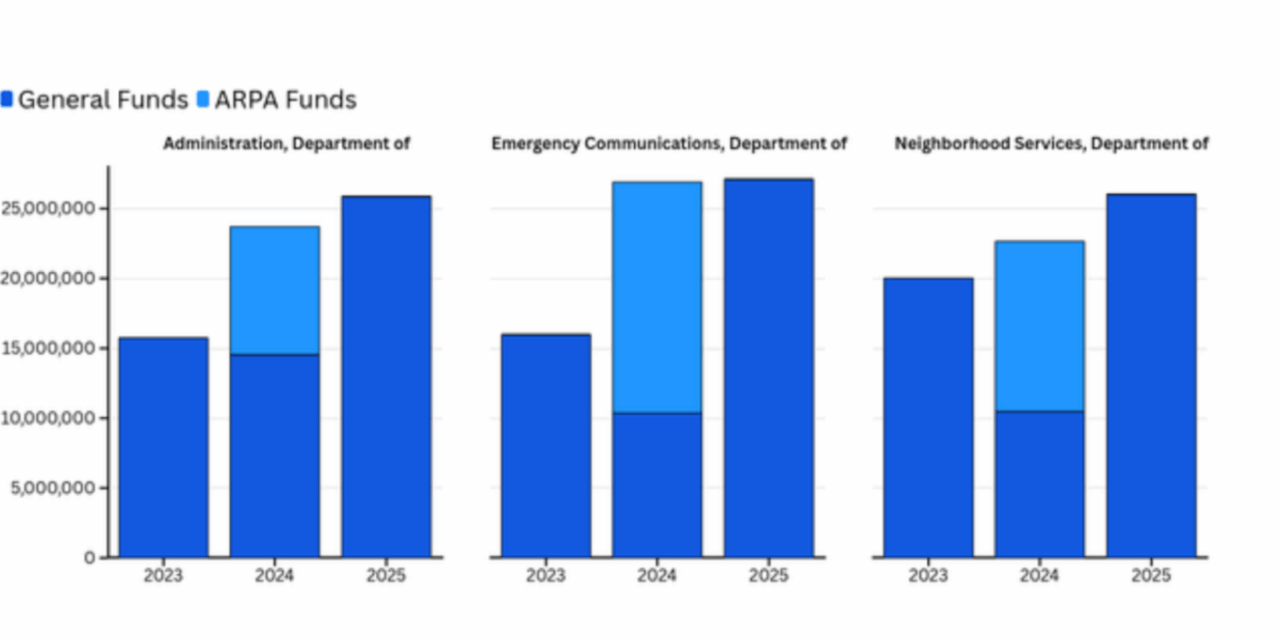MADISON, Wis. — State Senator Van Wanggaard has released his analysis of Milwaukee’s first full year under Wisconsin’s Act 12, asserting that between 90 and 99 percent of the “new” money tied to the law went to employee raises and the city’s pension system, with “virtually nothing” for police. He also pointed to a discrepancy of almost $20 million between what the city says it spent from its local sales tax and what the City Comptroller reported receiving.
Late Monday, Wanggaard said the Legislature approved Act 12 to help Milwaukee avert bankruptcy related to its underfunded pension while improving public safety.
“While I’m glad they’re paying off the pension as required, it appears they’re more interested in rewarding everyone from the mayor to the dog catcher with raises, rather than investing in police and public safety,” he said.
Wanggaard cited language from a Legislative Fiscal Bureau memo describing a mismatch between reported spending and collections: “the City of Milwaukee budget office reported $182.5 million in actual expenditures tied to sales and use tax revenues in 2024, while the City of Milwaukee Comptroller reports $200.6 million in sales and use tax revenues received in 2024.”
“Where did it go?” Wanggaard asks.
Earlier this year, Milwaukee Comptroller Bill Christianson said the 2024 city sales tax total was $200,621,090, above the original projection of $184 million. City budget director Nik Kovac told Wisconsin Public Radio that Act 12 requires the city to use 10 percent of sales tax collections to maintain current public safety levels and the remaining 90 percent for pension costs. “We can’t necessarily play with the money though because there are strict ways we have to spend that money,” Mayor Cavalier Johnson said in the same report.

Jeff Fleming, speaking for Mayor Johnson to WTMJ on Monday, questioned the presentation of the information, calling the timeframe of Senator Wanggaard’s report “cherrypicking” to understate pay increases for members of the Milwaukee Police Department.
“A timeframe the went back to 2008 would show police pay increases far surpassed the pay of general city employees. In fact, since 2008 the police increased more than double the general city employee increases,” Fleming told WTMJ. “Legally, neither ARPA money nor Act 12 sales tax money were (or could be) spent for wages.”
Act 12 authorized Milwaukee to levy a 2 percent city sales tax starting Jan. 1, 2024, and links increased state shared revenue to state sales tax collections. Independent analyses have detailed how the law directs most of the city’s new sales tax toward pension obligations while requiring a portion to maintain police and fire services. The Wisconsin Policy Forum’s 2024 brief noted that only $28 million of the projected $184 million in first-year city sales tax was available for general city purposes, with the remainder earmarked for pensions and 10 percent set aside to keep public safety at current levels. The same brief also estimated the city would invest about $20 million to $30 million in 2024 to update its compensation structure using one-time federal relief funds.
In its 2025 budget analysis, the Wisconsin Policy Forum reported that sales tax collections were expected to grow and that some sales tax revenue previously budgeted for employee retirement was shifted into general city purposes, rising from $28.0 million in 2024 to $51.6 million in the 2025 proposed budget. The forum added that the sales tax’s coverage of pension costs in 2024 “freed up” more property tax levy for city services as federal relief dollars waned.
Wanggaard’s also argues Milwaukee used one-time federal American Rescue Plan Act money in 2024 for ongoing salary, wage and benefit increases, then replaced those funds with Act 12 revenue in 2025. His office published tables he said were built from the City of Milwaukee budget site and Legislative Fiscal Bureau data, and he unveiled an interactive page for residents to review salary and departmental spending changes since Act 12.
The senator further contends that the Milwaukee Police Department saw the smallest percentage budget increase since Act 12 took effect, and he criticized prolonged bargaining over a new police contract. “More money won’t be coming,” he said. “It’s literally now or never.”
City officials have said Act 12’s maintenance-of-effort rules require Milwaukee to sustain sworn staffing levels and to direct the vast majority of new sales tax revenue to pension costs, a framework that independent budget analysts say eased immediate fiscal pressure but left longer-term decisions for policymakers as federal aid expires.
What’s next:
Wanggaard said the public can review his compilations on an interactive website.
Mayor Johnson delivers his budget address Tuesday.














